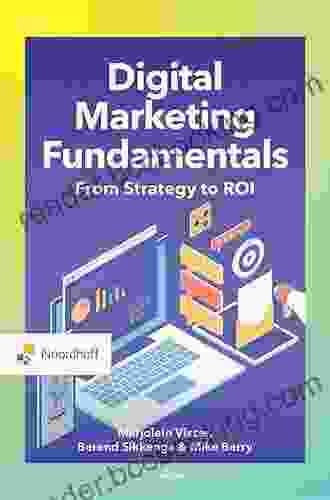How Far Have We Come and Gone: Exploring the Evolution of Departmental Papers


4.9 out of 5
| Language | : | English |
| File size | : | 4443 KB |
| Text-to-Speech | : | Enabled |
| Enhanced typesetting | : | Enabled |
| Word Wise | : | Enabled |
| Print length | : | 145 pages |
| Screen Reader | : | Supported |
In the realm of academia, departmental papers serve as invaluable tools for capturing the intellectual discourse and research advancements within specific disciplines. They offer a glimpse into the evolving ideas, methodologies, and discoveries that have shaped our understanding of the world around us.
The book "How Far Have We Come and Gone: Departmental Papers" is a captivating exploration of the history, significance, and impact of these papers. Through a meticulous collection of essays and archival documents, it provides a comprehensive overview of their role in the academic landscape and their enduring influence on the development of knowledge.
Tracing the Roots: The Early Beginnings of Departmental Papers
The concept of departmental papers emerged in the mid-19th century, coinciding with the rise of research universities and the increasing specialization of academic disciplines.
Initially, these papers served as a means for faculty members to share their research findings with colleagues and students within their respective departments. They provided a platform for the dissemination of new ideas, stimulating intellectual debate and collaboration.
Over time, departmental papers evolved into more formal publications, subject to rigorous peer review and editorial standards. They became an essential component of scholarly communication, contributing to the growth and advancement of academic disciplines.
The Golden Age of Departmental Papers
The early to mid-20th century witnessed a golden age for departmental papers. The rapid expansion of higher education and the influx of government funding for research led to a surge in the production and circulation of these publications.
Departmental papers played a central role in shaping the intellectual landscape of the time. They provided a forum for the presentation of groundbreaking research, fostered interdisciplinary dialogue, and facilitated the exchange of ideas across institutional boundaries.
Renowned scholars published their seminal works in departmental papers, establishing a legacy of academic excellence and contributing to the advancement of human knowledge.
Challenges and Adaptations in the Digital Age
The advent of the digital age brought both opportunities and challenges for departmental papers. The proliferation of online journals and open access platforms made research more widely accessible than ever before.
However, the ease of digital publishing also led to a proliferation of lower-quality publications, raising concerns about maintaining academic rigor and ensuring the integrity of the peer review process.
In response to these challenges, departmental papers have undergone a period of adaptation. Many have shifted to online platforms, embracing open access models and leveraging digital tools to enhance their reach and impact.
Furthermore, there has been a renewed emphasis on quality control, with editorial boards implementing stricter standards to ensure the credibility and significance of published research.
The Future of Departmental Papers
As we look ahead, departmental papers continue to play a vital role in the academic ecosystem.
While their format and distribution channels may evolve, their core purpose remains the same: to disseminate research, foster intellectual exchange, and advance the frontiers of knowledge.
In the years to come, departmental papers are likely to become even more closely integrated with digital technologies. Artificial intelligence and machine learning algorithms will assist in the discovery, analysis, and dissemination of research findings.
Moreover, the increasing emphasis on interdisciplinary research and global collaboration will likely lead to the emergence of new types of departmental papers that transcend traditional disciplinary boundaries.
"How Far Have We Come and Gone: Departmental Papers" is a valuable resource for anyone interested in the history, evolution, and future of academic publishing. Through its in-depth analysis and rich collection of primary sources, it offers a unique perspective on the role of departmental papers in shaping the intellectual landscape and advancing human knowledge.
Whether you are a seasoned academic, a budding researcher, or simply curious about the inner workings of academia, this book provides a fascinating glimpse into the world of departmental papers and their enduring impact on our understanding of the world around us.
4.9 out of 5
| Language | : | English |
| File size | : | 4443 KB |
| Text-to-Speech | : | Enabled |
| Enhanced typesetting | : | Enabled |
| Word Wise | : | Enabled |
| Print length | : | 145 pages |
| Screen Reader | : | Supported |
Do you want to contribute by writing guest posts on this blog?
Please contact us and send us a resume of previous articles that you have written.
 Book
Book Novel
Novel Page
Page Chapter
Chapter Text
Text Story
Story Genre
Genre Reader
Reader Library
Library Paperback
Paperback E-book
E-book Magazine
Magazine Newspaper
Newspaper Paragraph
Paragraph Sentence
Sentence Bookmark
Bookmark Shelf
Shelf Glossary
Glossary Bibliography
Bibliography Foreword
Foreword Preface
Preface Synopsis
Synopsis Annotation
Annotation Footnote
Footnote Manuscript
Manuscript Scroll
Scroll Codex
Codex Tome
Tome Bestseller
Bestseller Classics
Classics Library card
Library card Narrative
Narrative Biography
Biography Autobiography
Autobiography Memoir
Memoir Reference
Reference Encyclopedia
Encyclopedia Mitch Peeke
Mitch Peeke Selena Dale
Selena Dale Sheila Watt Cloutier
Sheila Watt Cloutier Sharon Rudahl
Sharon Rudahl Tricia Martineau Wagner
Tricia Martineau Wagner Karina Garcia
Karina Garcia Robin Stevenson
Robin Stevenson Samuel T Reddy
Samuel T Reddy Tabakmann
Tabakmann Phyllis Root
Phyllis Root Shuai Huang
Shuai Huang Rodney Wash
Rodney Wash Yves Pochet
Yves Pochet Sally Warner
Sally Warner Rahul Jandial
Rahul Jandial Merryl Hammond Phd
Merryl Hammond Phd Kindle Edition
Kindle Edition Lisa Edwards
Lisa Edwards Paul Redvers Brown
Paul Redvers Brown Kirk Bailey
Kirk Bailey
Light bulbAdvertise smarter! Our strategic ad space ensures maximum exposure. Reserve your spot today!

 Chuck MitchellGuide To The History, Talents, And Training Of Baildale The Flounderhounder
Chuck MitchellGuide To The History, Talents, And Training Of Baildale The Flounderhounder Logan CoxFollow ·14.9k
Logan CoxFollow ·14.9k Hudson HayesFollow ·10.6k
Hudson HayesFollow ·10.6k Walt WhitmanFollow ·13.9k
Walt WhitmanFollow ·13.9k Glen PowellFollow ·12.3k
Glen PowellFollow ·12.3k Jeffery BellFollow ·13.2k
Jeffery BellFollow ·13.2k Jesus MitchellFollow ·19.2k
Jesus MitchellFollow ·19.2k Douglas FosterFollow ·13.3k
Douglas FosterFollow ·13.3k Neil ParkerFollow ·18.7k
Neil ParkerFollow ·18.7k

 Liam Ward
Liam WardUnleash the Power of Goblin Slayer: Discover the Gripping...
Enter the Shadowy Realm of...

 Eli Brooks
Eli BrooksWalking the Territory: Your Essential Companion for...
Adventure Awaits! Prepare to immerse yourself...

 Floyd Richardson
Floyd RichardsonGoblin Slayer: A Gripping Light Novel Series That Will...
Step into the shadowy...

 Dennis Hayes
Dennis HayesFrom Strategy to ROI: The Ultimate Guide to Driving...
In the dynamic and competitive business...

 Edward Reed
Edward ReedUnveiling the Rich Tapestry of Tennis in Britain: A...
: Tennis - A British Love Affair Tennis, a...

 Michael Crichton
Michael CrichtonEscape into the Thrilling World of "Here and Now" by...
In the tapestry...
4.9 out of 5
| Language | : | English |
| File size | : | 4443 KB |
| Text-to-Speech | : | Enabled |
| Enhanced typesetting | : | Enabled |
| Word Wise | : | Enabled |
| Print length | : | 145 pages |
| Screen Reader | : | Supported |










